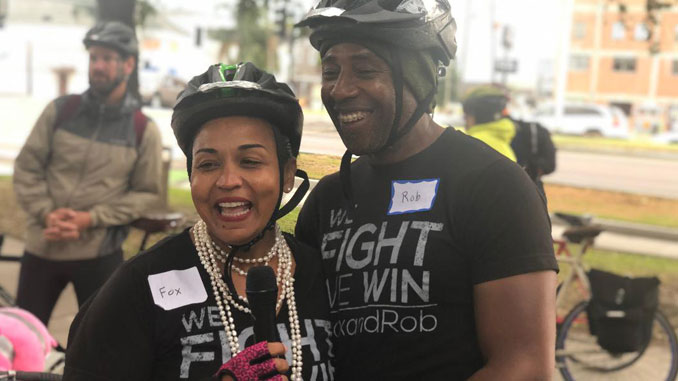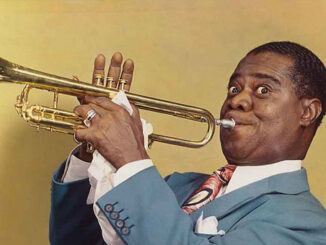
Story and Photos Edward Carter III Data News Weekly Contributor
It’s a system that takes a toll on families the most.
In a country that has the largest prison population and the highest per-capita incarceration rate in the world, around 93.2 percent of the approximately 185,500 federal inmates are men. Seven percent are women. Around 40 percent are African Americans.
The location of state penitentiaries also makes it difficult for inmates to see their families regularly. In other cases, inmates are transported to different states and the distance has heightened the challenge for families to stay connected during incarceration. In New Orleans, it’s a 170-mile journey from the city to the Louisiana State Penitentiary in West Feliciana Parish called Angola, named after the former plantation, it now occupies. On October 18, families and advocates sought to support families who wish to stay connected to incarcerated loved ones by raising funds through the Nola to Angola Annual Bike Ride.
“I spent 32 years incarcerated and through that course of 32 years I learned a lot about the importance of visitation,” said Leo Jackson, the founder of Nola to Angola, now in its 9th year. “There were times where my family couldn’t visit me because my parents couldn’t make that long journey to Angola,” he said.
Jackson kicked off the bike ride at Municipal Court at Tulane and Broad Avenues, the place where many separations begin. The Bike Riding Program raises money for transportation provided by the Cornerstone Bus Project so that families of incarcerated individuals can have a means to regularly visit their loved ones. Over 70 riders’ cycle from New Orleans to Angola to demonstrate the distance of the trip and to raise awareness to support programs like the bus project to keep families connected during incarceration. The goal of Nola to Angola is to raise $50,000 or more so inmates can see their families regularly through the Free Bus Program.
The riders included not just local citizens but previous inmates who shared that their situation was very similar when their families weren’t able to visit them. They commit to making the 170-mile trip, which takes them a total of three days.
“This bike ride is one of those things that brings awareness to what we need to do in order to bring equity in our Criminal Justice System,” said Rob Richardson, one of this year’s Nola to Angola riders.
Richardson, who served a 21-year-sentence at Angola said after he was released in 2018, the bike ride became very sentimental to him as he makes the trip back to the place he was incarcerated in support of those still serving terms and understanding the toll for families.
“I want to represent those 6,000-plus men that are housed in the Angola State Penitentiary alone and to give back to just short of 40,000 incarcerated men and women throughout our state,” Richardson said.
The free bus trips have become a space for families of the incarcerated to support each other both emotionally and logistically during the separations. Rob’s wife, Fox Richardson, also told residents at the start of this year’s bike ride about the feeling she had when her husband was incarcerated.
“When you’re fighting for your family when you know that you have been done wrong by a system that is supposed to be about justice. When that system commits an act of violence against your family and injustice against you, it’s a hard role to hold,” said Fox Richardson, one of this year’s Nola to Angola riders.
It was not easy for Fox Richardson to raise six sons with the absence of their father due to incarceration, she said. She kept hope and made sure her children still had a relationship with their father even due to the disadvantages of Rob being in prison for most of their upbringing.
“Love is the most divine chemical in the universe,” said Fox Richardson. “The love that we shared as a family sustained us to make it through the most difficult situations. And to continue to give faith and hope to our six sons that one day their father was going to come home. It was a moment for me,” Richardson said.
This experience allows citizens to get insights on what it feels like to be in a penitentiary and gives former inmates a recap and remembrance of the feeling to continue to make a difference for other families when they get out.
“And that is what this Nola to Angola is about. It’s about bringing families together and letting nothing stop love, not even prison walls,” she added.
Recommended For You.






Be the first to comment